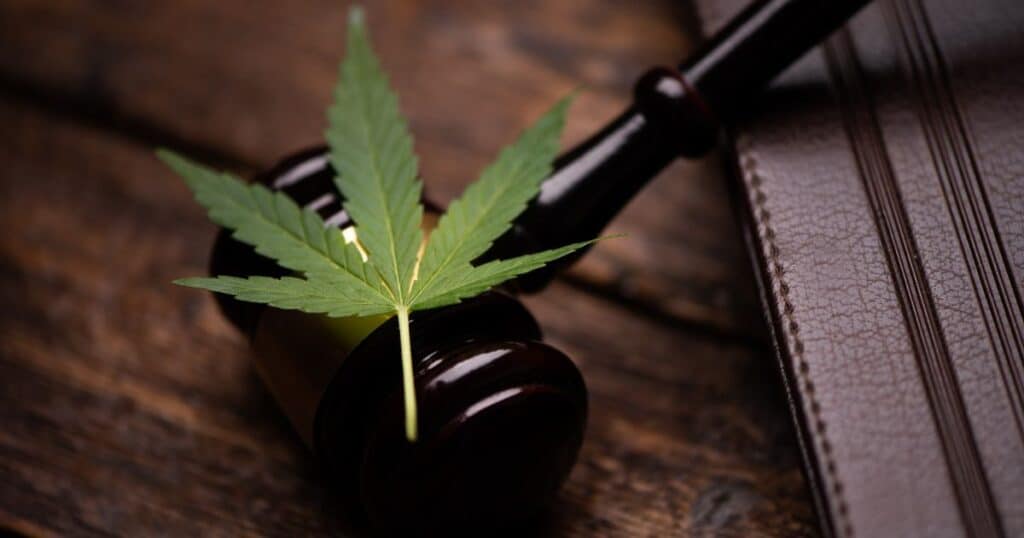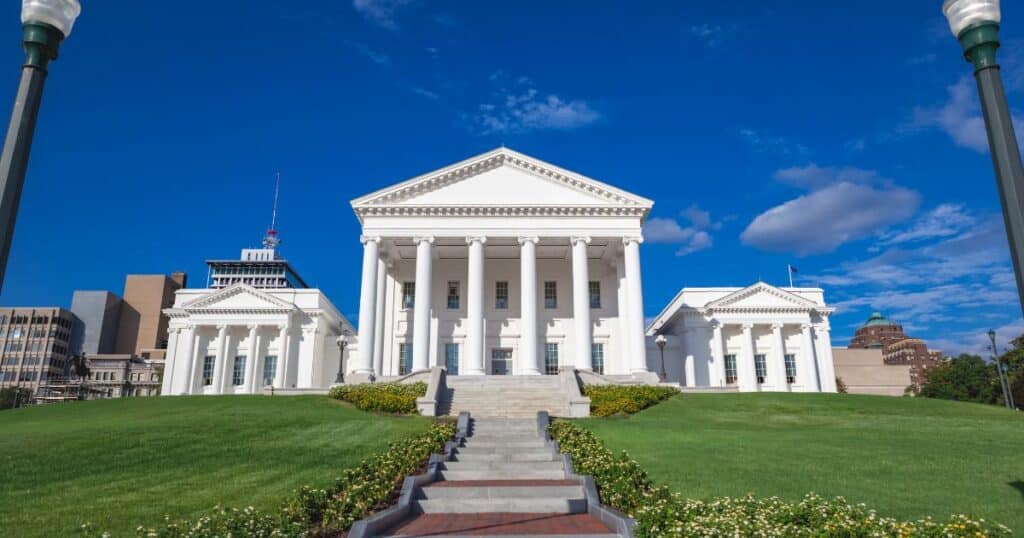With the tide of cannabis reform sweeping the nation, Virginia’s dance with marijuana legalization has been anything but smooth. Despite the first steps taken in 2021 with the decriminalization of small amounts of cannabis and the recognition of medicinal use, the crucial piece of creating a regulated adult-use market has yet to materialize. Virginia Governor Glenn Youngkin’s stance on the issue has become a focal point, as it illustrates the significant barriers still standing in the way of comprehensive cannabis reform.

In 2021, Virginia celebrated a milestone in cannabis legislation, permitting individuals aged 21 and older to possess small quantities of marijuana. The initial strides toward a more progressive approach to cannabis seemed promising.
However, the absence of a functional, regulated market meant that the promise of legalization had not been fully realized. This legal imperfection allowed for a peculiar scenario where one could possess cannabis, but the means to acquire it legally were not present.
Fast forward to the present, where the spectacle between the Democratic-controlled General Assembly and the Republican Governor takes center stage. Despite the apparent popular support for adult-use sales, the strain of partisanship and policy priorities has cast shadows on Virginia’s progress in this domain.
The situation is particularly complex given that the cannabis bill has yet to be formally transmitted to the governor. Regardless, the warning signs from Governor Youngkin about his lack of enthusiasm for the bill put a looming veto on the horizon.
The crux of the issue lies not only in the failure to create a legal market but in the broader political landscape. The breakdown in cooperation, which surfaced following the disagreement over a sports arena proposal, seems to have poisoned the waters of bipartisanship, further imperiling any hope for a unified approach to this legislation.
Typical Politicians
The collapse of negotiations between Democratic lawmakers and the Governor regarding a sports arena proposal has seemed to strike a fatal blow to any chance of leveraging the cannabis bill as a quid pro quo.
While the merits of the arena deal can be debated, it’s the collateral damage to other policy issues that arouses critical analysis. Governor Youngkin’s public remarks, outrightly disparaging the idea of establishing cannabis shops on street corners, have cemented the precarious position of the cannabis bill in his eyes.
“At the end of the day here we are talking about an opportunity, truly an opportunity, to bring 30,000 jobs [and] $12 billion of economic impact in the commonwealth of Virginia in the fastest growing, most dynamic area — which is sports and entertainment,” Youngkin said on March 7 after arena proposal fell through via WRIC. “And, bluntly, you want to talk about putting a cannabis shop on every corner. I don’t quite get it, honestly.”
With the focus almost exclusively on the political drama of the deal’s disintegration, the cannabis bill seemingly has unfortunately become a casualty of the wider deadlock gripping the legislative process. The missed opportunity to align the cannabis bill with one of the Governor’s priority projects, the potential sports arena, underscores a notable divide in policy negotiation tactics.
Despite the potential benefits, such as millions in tax revenue and job creation, Governor Glenn Youngkin’s reluctance to sign any bill that creates a legal marketplace for cannabis—a substance already decriminalized and recognized as legal for medicinal use in Virginia—highlights a disconnection from the economic and social advantages that such a framework could foster.
This stance not only hinders the progress of cannabis reform but also disregards the significant economic contributions that a regulated cannabis market could offer to the state. The refusal to establish a legal framework for the purchase of cannabis appears incongruent with the state’s needs and the general will of its populace, who stand to benefit from the industry’s substantial economic impact.
Further complicating the governor’s stance on cannabis, Youngkin also vetoed a pivotal House bill at the end of the most recent legislative session, which aimed at protecting parental rights in the context of legalized marijuana. This piece of legislation stated that a child could not be considered abused or taken from the custody of a parent or guardian solely on the basis of the adult being convicted of possession or consumption of marijuana, recognizing it as a legal substance under Virginia law.
The bill passed the House on a largely party-line vote and glided through the Senate with only one dissenting voice. Governor Youngkin’s veto of this bill sends a stark message, reinforcing his unwillingness to align with the evolving perspectives on cannabis within Virginia’s legal framework. This action not only impacts individuals and families on a personal level but also reflects a broader reluctance to adapt to the state’s shifting legal landscape concerning cannabis.

Governor Youngkin’s reluctance to sign the adult-use marijuana sales bill, combined with his recent legislative actions, signals that the obstacles are multiplying against cannabis reform.
The impending deadline for Youngkin’s action on the bill has raised tensions and uncertainty among advocates and lawmakers alike. While the possibility of Youngkin reconsidering his stance remains a dim hope, the likelihood of the bill passing into law without his endorsement stands as a testament to the enduring support behind marijuana reform.
The bill’s anticipated start date for recreational sales in May 2025 is now veiled in the uncertainty of Governor Youngkin’s inclinations. With the specter of potential vetoes or non-action casting a long shadow over the bill, the future of Virginia’s regulated cannabis market has been left dangling.
















